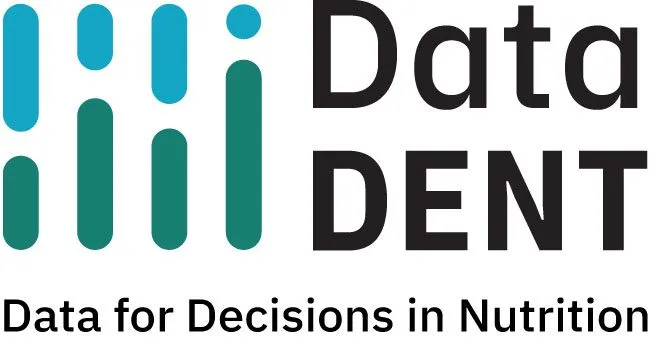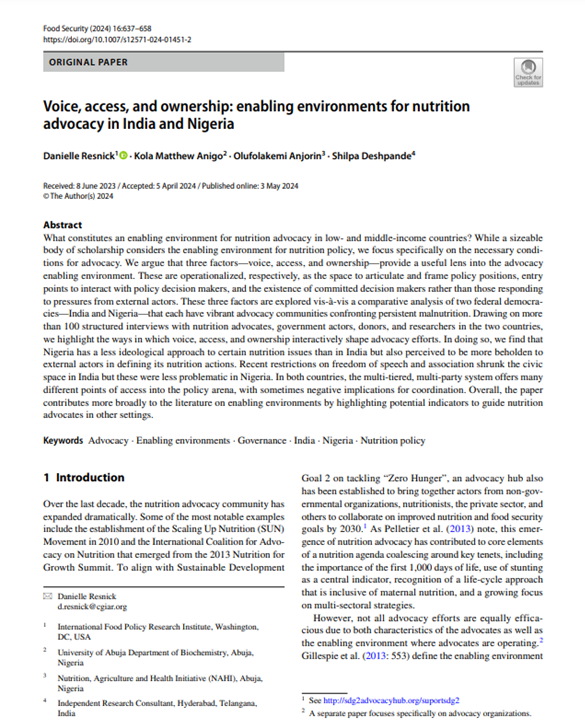Journal Article | https://link.springer.com/content/pdf/10.1007/s12571-024-01451-2.pdf
Date of Publication | June 2023
Abstract
What constitutes an enabling environment for nutrition advocacy in low- and middle-income countries? While a sizeable body of scholarship considers the enabling environment for nutrition policy, we focus specifically on the necessary conditions for advocacy. We argue that three factors—voice, access, and ownership—provide a useful lens into the advocacy enabling environment. These are operationalized, respectively, as the space to articulate and frame policy positions, entry points to interact with policy decision makers, and the existence of committed decision makers rather than those responding to pressures from external actors. These three factors are explored vis-à-vis a comparative analysis of two federal democracies—India and Nigeria—that each have vibrant advocacy communities confronting persistent malnutrition. Drawing on more than 100 structured interviews with nutrition advocates, government actors, donors, and researchers in the two countries, we highlight the ways in which voice, access, and ownership interactively shape advocacy efforts. In doing so, we find that Nigeria has a less ideological approach to certain nutrition issues than in India but also perceived to be more beholden to external actors in defining its nutrition actions. Recent restrictions on freedom of speech and association shrunk the civic space in India but these were less problematic in Nigeria. In both countries, the multi-tiered, multi-party system offers many different points of access into the policy arena, with sometimes negative implications for coordination. Overall, the paper contributes more broadly to the literature on enabling environments by highlighting potential indicators to guide nutrition advocates in other settings.

